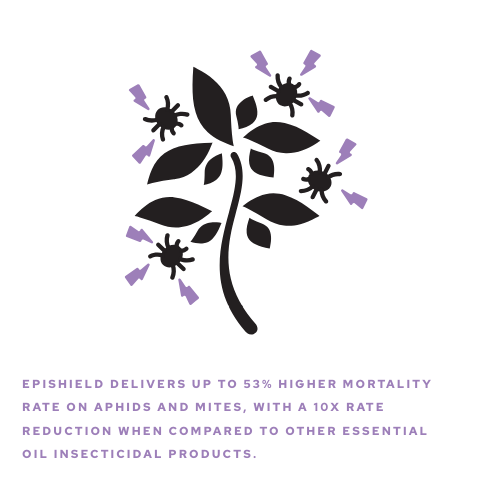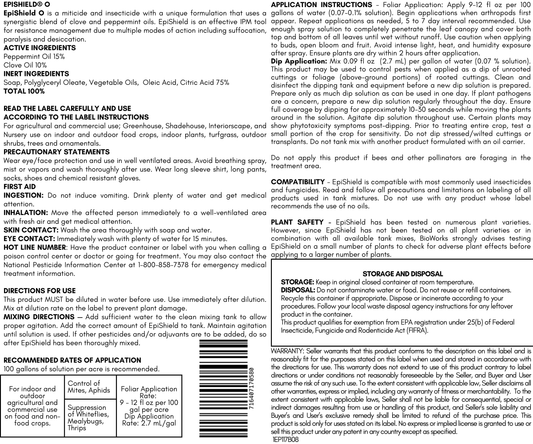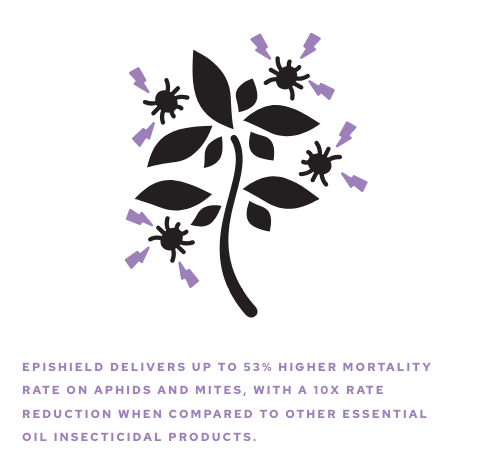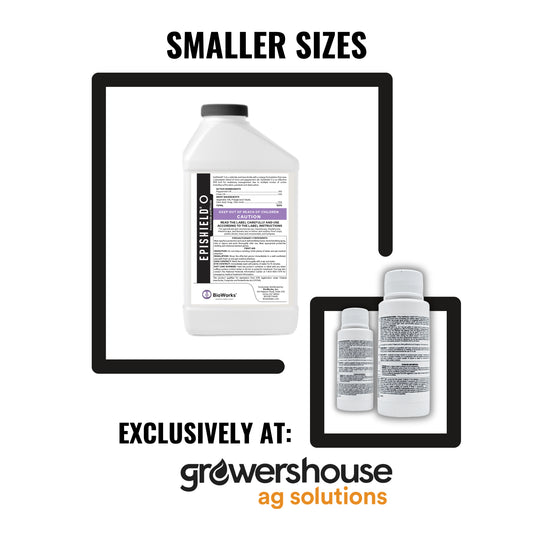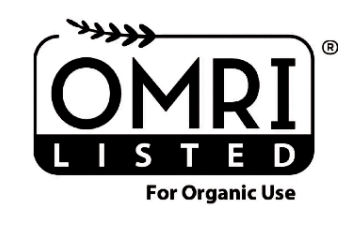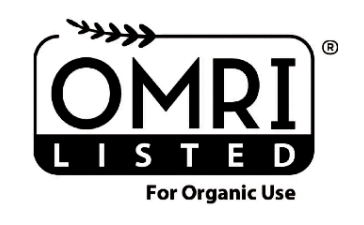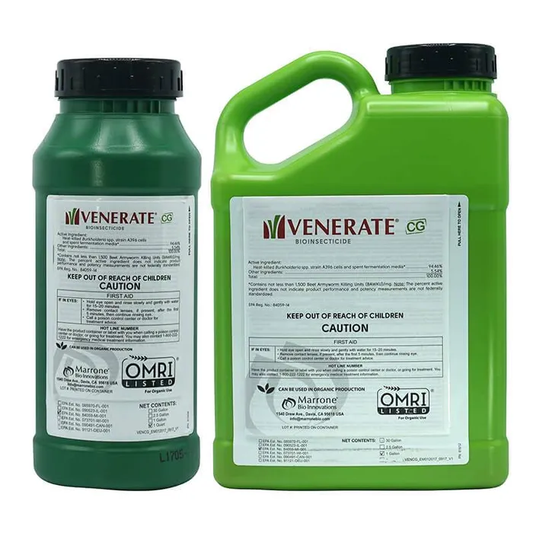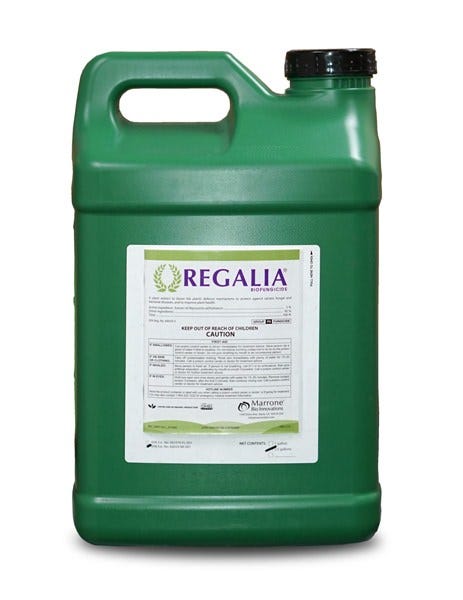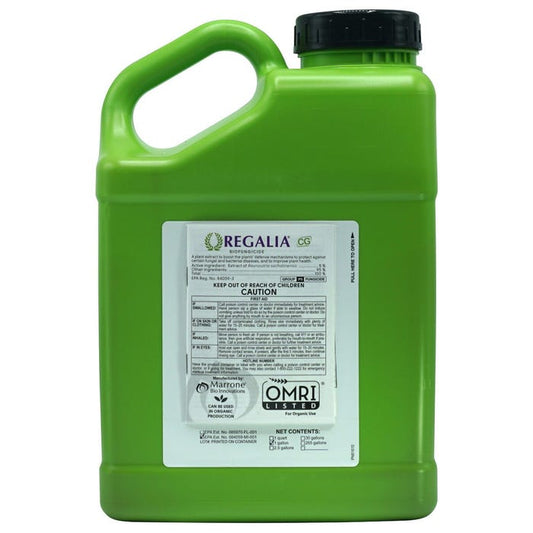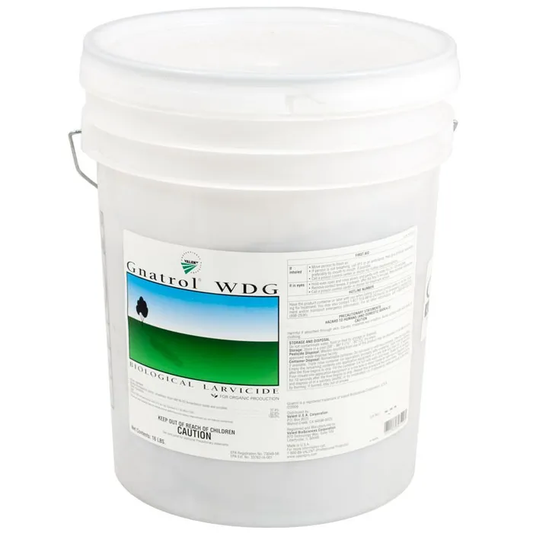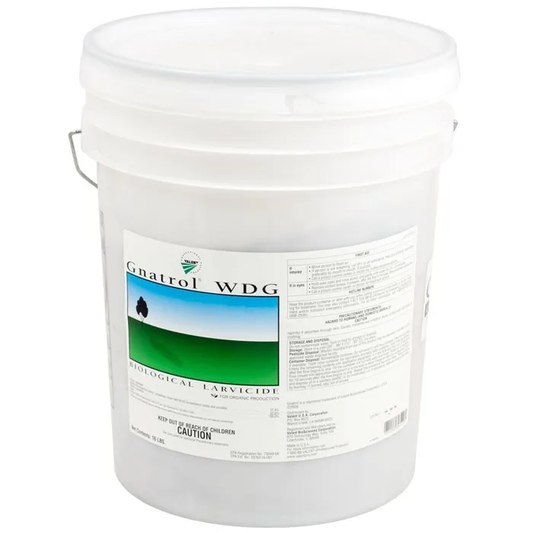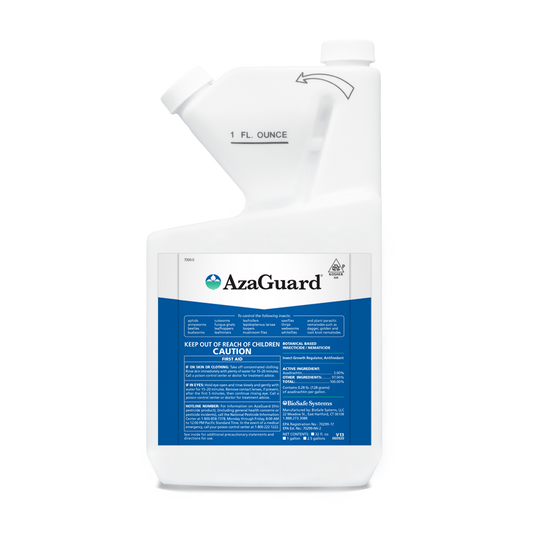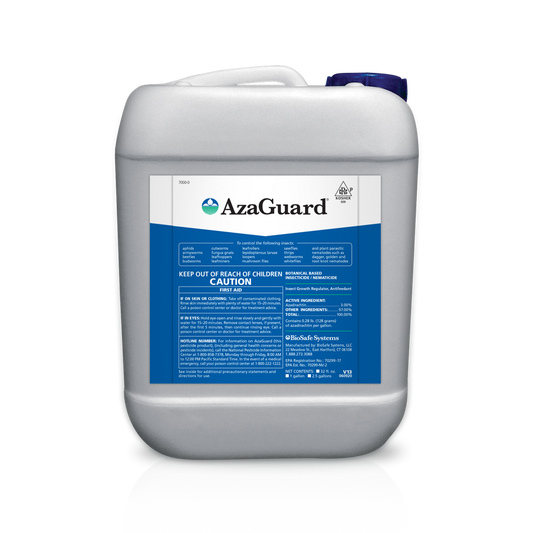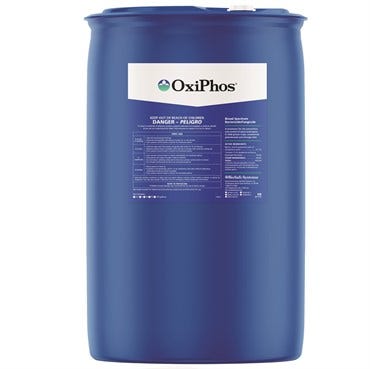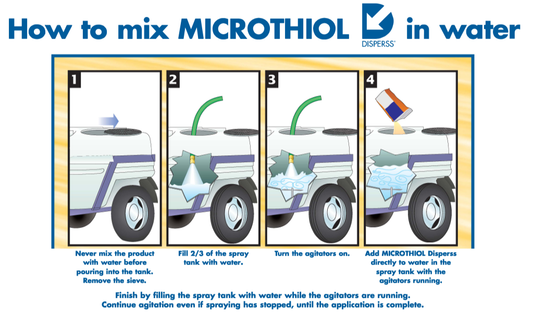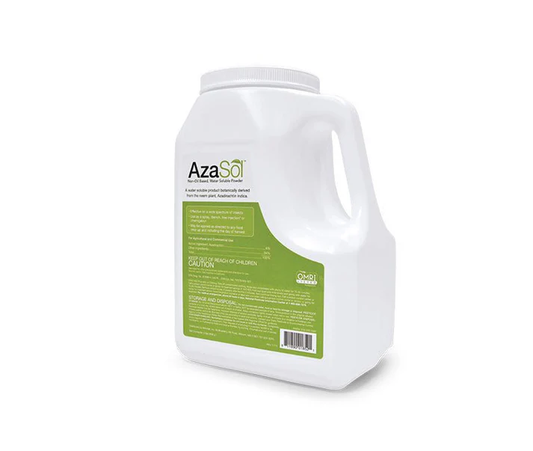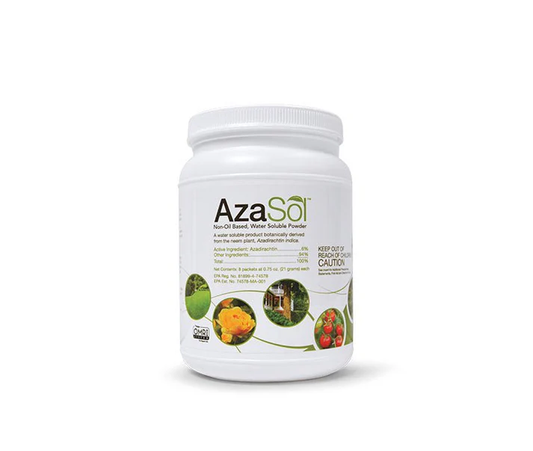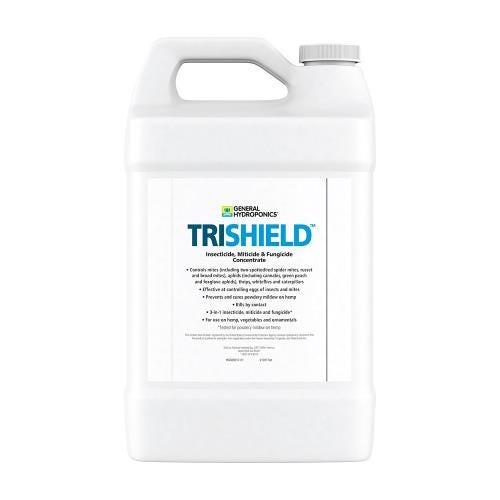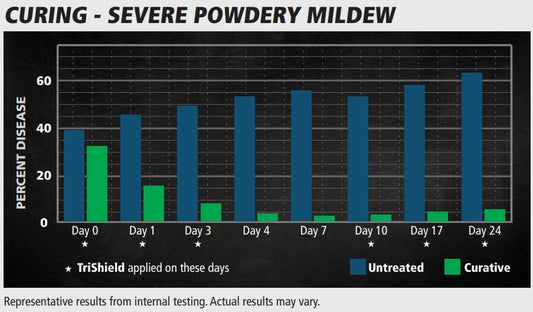Pesticides + Insecticides
Explore hydroponic pesticides and insecticides at GrowersHouse, from insect sprays and foggers to neem oil and insecticidal soaps for professional pest control. Tackle aphids, spider mites, thrips, fungus gnats, and whiteflies while protecting your indoor garden yields.
-
Bioworks Epishield - 2 fl oz
Vendor:BioWorks Inc.Regular price $39.51 USDRegular priceUnit price / per -
Bioworks Epishield - 8 fl oz
Vendor:BioWorksRegular price $99.51 USDRegular priceUnit price / per -
Bioworks Epishield O - 36 fl oz
Vendor:BioWorks Inc.Regular price $288.46 USDRegular priceUnit price / per -
Bioworks Epishield O - 2.5 gallon
Vendor:BioWorks Inc.Regular price $2,274.36 USDRegular priceUnit price / per -
BioWorks Molt-X - 1-Quart
Vendor:BioWorksRegular price $239.74 USDRegular priceUnit price / per -
BioWorks SuffOil-X
Vendor:BioWorks Inc.Regular price From $89.74 USDRegular priceUnit price / perBioWorks SuffOil-X
Regular price From $89.74 USDRegular priceUnit price / perBioWorks SuffOil-X
Regular price From $89.74 USDRegular priceUnit price / per -
ProFarm Marrone Bio Innovations Venerate CG Bioinsecticide - OMRI Listed
Vendor:Marrone Bio InnovationsRegular price From $52.49 USDRegular priceUnit price / perProFarm Marrone Bio Innovations Venerate CG Bioinsecticide - OMRI Listed
Regular price From $52.49 USDRegular priceUnit price / perProFarm Marrone Bio Innovations Venerate CG Bioinsecticide - OMRI Listed
Regular price From $52.49 USDRegular priceUnit price / per -
ProFarm Marrone Bio Innovations Grandevo WDG Bioinsecticide Miticide OMRI Listed
Vendor:Marrone Bio InnovationsRegular price From $154.99 USDRegular priceUnit price / perProFarm Marrone Bio Innovations Grandevo WDG Bioinsecticide Miticide OMRI Listed
Regular price From $154.99 USDRegular priceUnit price / perProFarm Marrone Bio Innovations Grandevo WDG Bioinsecticide Miticide OMRI Listed
Regular price From $154.99 USDRegular priceUnit price / per -
ProFarm Marrone Bio Innovations Regalia CG - OMRI Listed
Vendor:Marrone Bio InnovationsRegular price From $49.31 USDRegular priceUnit price / perProFarm Marrone Bio Innovations Regalia CG - OMRI Listed
Regular price From $49.31 USDRegular priceUnit price / perProFarm Marrone Bio Innovations Regalia CG - OMRI Listed
Regular price From $49.31 USDRegular priceUnit price / per -
Valent Organic Gnatrol WDG BTI Pesticide
Vendor:Valent BioSciencesRegular price From $65.09 USDRegular priceUnit price / perValent Organic Gnatrol WDG BTI Pesticide
Regular price From $65.09 USDRegular priceUnit price / perValent Organic Gnatrol WDG BTI Pesticide
Regular price From $65.09 USDRegular priceUnit price / per -
BioSafe BioCeres WP - 1 lb - Bio-Insecticide
Vendor:BioSafe SystemsRegular price $81.08 USDRegular priceUnit price / per -
BioSafe Systems AzaGuard Botanical Insecticide
Vendor:Biosafe SystemsRegular price From $197.53 USDRegular priceUnit price / perBioSafe Systems AzaGuard Botanical Insecticide
Regular price From $197.53 USDRegular priceUnit price / perBioSafe Systems AzaGuard Botanical Insecticide
Regular price From $197.53 USDRegular priceUnit price / per -
BioSafe Systems OxiPhos 55 gal
Vendor:BioSafe SystemsRegular price $3,382.35 USDRegular priceUnit price / per -
Microthiol Disperss - Micronized Sulfur - 30 lbs
Vendor:UPLRegular price $60.00 USDRegular priceUnit price / per -
AzaSol Container Neem Based Water Soluble Powder
Vendor:ArborjetRegular price From $298.51 USDRegular priceUnit price / perAzaSol Container Neem Based Water Soluble Powder
Regular price From $298.51 USDRegular priceUnit price / perAzaSol Container Neem Based Water Soluble Powder
Regular price From $298.51 USDRegular priceUnit price / per -
GH TriShield Insecticide - Miticide - Fungicide
Vendor:General HydroponicsRegular price $189.83 USDRegular priceUnit price / per
Pesticides + Insecticides
Find targeted pesticides and insecticides for hydroponic systems to stop aphids, fungus gnats, spider mites, thrips, and whiteflies before they damage roots, leaves, and flowers. This collection includes insect sprays, foggers, neem-based products, insecticidal soaps, pyrethrin formulas, and sticky traps designed for serious indoor and greenhouse growers...
How These Products Help Growers
Protect Plant Health and Yields
Pests weaken plants by sucking sap, chewing roots, and spreading diseases, which slows growth and reduces final yields. Using the right pesticides and insecticides lets you quickly knock down outbreaks, keep foliage clean, and protect your investment in lighting, nutrients, and environmental control.
Support Integrated Pest Management (IPM)
These products fit perfectly into an IPM strategy that combines prevention, monitoring, and targeted treatments. Regular scouting, sticky traps, and well-timed sprays help you break pest life cycles while minimizing stress on plants and avoiding constant heavy applications.
Key Types of Pest Control Products
Insect Sprays and Foggers
Contact insect sprays provide fast control of visible pests on leaves and stems, ideal when you first spot aphids, mites, or thrips. Foggers help treat the entire room or tent, reaching tight spaces and undersides of benches where insects hide, making them useful during serious outbreaks.
Natural Oils and Soaps
Neem-based sprays disrupt pest feeding and reproduction, while insecticidal soaps break down soft-bodied insects like aphids, thrips, and whiteflies. Pyrethrin, derived from chrysanthemums, quickly paralyzes many pests, including spider mites, so they stop feeding on sensitive plant tissues.
Sticky Traps and Prevention
Yellow sticky traps are essential for catching flying adults such as fungus gnats and whiteflies and for monitoring pest pressure. Combined with good hygiene, removing algae and debris, and isolating infested plants, they help prevent small problems from turning into full infestations.
Controlling Common Hydroponic Pests
Aphids, Fungus Gnats, and Spider Mites
Aphids and spider mites suck plant juices, causing curled, speckled leaves and reduced vigor, especially in dry conditions. Fungus gnats lay eggs in moist media, and their larvae can chew on roots. Treat with insecticidal soaps, neem or pyrethrin sprays, reduce excess moisture, and use sticky traps to remove adults and break their life cycles.
Thrips and Whiteflies
Thrips scrape and suck plant tissues, often damaging young growth and flowers, while whiteflies feed on sap and leave sticky honeydew that encourages sooty mold. Sticky traps, neem oil, and insecticidal soaps, combined with removing heavily infested leaves, help keep these pests from spreading across your system.
Frequently Asked Questions
What are the most common pests in hydroponics?
The most common hydroponic pests are fungus gnats, spider mites, thrips, whiteflies, and aphids. They thrive in warm, stable indoor environments and can spread quickly, so regular scouting, sticky traps, and timely sprays are essential.
How do you control fungus gnats in hydroponics?
Control fungus gnats by reducing excess moisture on the media surface, removing algae and organic buildup, and placing yellow sticky traps near the base of plants. Use neem oil, insecticidal soaps, or other labeled products on the media and surrounding areas to break their larva and adult stages.
What is the fastest way to get rid of spider mites?
Isolate infested plants, prune heavily damaged leaves, and apply a spider mite spray containing neem, pyrethrin, or insecticidal soap with thorough coverage, especially on leaf undersides. Repeat as directed and slightly increase humidity to make conditions less favorable for mites.
Can a plant be saved after spider mites?
Many plants can recover from spider mites if you act early. Remove damaged foliage, treat repeatedly with appropriate sprays, keep the plant well-fed and watered, and monitor new growth closely to ensure mites are fully eliminated.
Should I throw out a plant with thrips?
You do not always have to discard a plant with thrips. For light to moderate infestations, use sticky traps, insecticidal soaps, or neem sprays and remove badly affected leaves. If one plant is heavily infested and threatening the rest of your garden, it may be safer to remove it.
What are the white flies on my hydroponic plants?
Those small, fluttering insects are likely whiteflies, which feed on plant sap and leave sticky honeydew that can lead to sooty mold. They usually hide on the undersides of leaves, so check there regularly when scouting your garden.
What is the fastest way to get rid of whiteflies?
To quickly reduce whiteflies, hang sticky traps around your plants and spray leaf tops and undersides with neem oil or insecticidal soap. Repeat treatments as new eggs hatch and remove heavily infested leaves to keep populations from rebounding.


